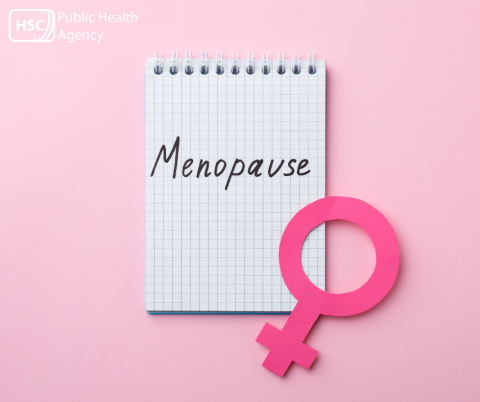Making menopause manageable: how healthy habits can help

As World Menopause Day approaches on 18 October, the Public Health Agency (PHA) is highlighting how simple lifestyle choices – particularly around nutrition, physical activity and sleep – can make a real difference to women’s health and wellbeing during perimenopause and menopause.
Half of the world’s population will experience menopause, and around eight in ten women report troublesome symptoms such as hot flushes, night sweats and brain fog. This year’s theme, ‘Lifestyle Medicine’, shines a light on how everyday habits can help manage symptoms and support long-term health.
Dr Hannah McCourt, Health Improvement Manager at the PHA, said: “Menopause is a natural life stage, but for many women, it can feel like a storm with no warning. The symptoms — physical, emotional, and cognitive — can be very challenging for some. But the good news is that small, sustainable lifestyle changes can make a real difference. Nutrition, staying active and prioritising sleep are powerful tools not just for symptom relief, but for helping to protect overall health, as menopause can increase the risk of conditions like heart disease and osteoporosis.
“We want to empower women with clear, trustworthy information so they can take positive steps for their health during perimenopause, menopause and beyond.”
Recognising that there is often misinformation about diet and menopause, the Public Health Dietitians Group have developed two short, evidence-based videos offering practical nutrition advice to support women during this stage of life.
Jill Stewart, Registered Public Health Dietitian, added: “There’s so much conflicting advice online about diet and menopause. Whilst there is no such thing as a ‘menopause diet’, we want to cut through that noise with practical, evidence-based guidance on how simple lifestyle changes can help manage common menopausal symptoms.
“Eating a healthy balanced diet rich in wholegrains, fruits and vegetables can help boost gut microbiome and balance hormone levels. Nutrients like calcium, proteins and vitamin D are important for maintaining muscle and bone strength, which can be affected by hormonal changes during menopause. Alongside regular activity, a healthy diet can support both symptom management and long-term health.”
Whether you’re going through menopause yourself, supporting a partner, friend or colleague, or simply interested in women’s health, these resources offer useful, actionable tips that you can start applying straight away.
You can find out more on the Public Health Dietitians YouTube channel here: A Dietitian’s Guide to Perimenopause and Menopause: 1 Diet and Lifestyle
